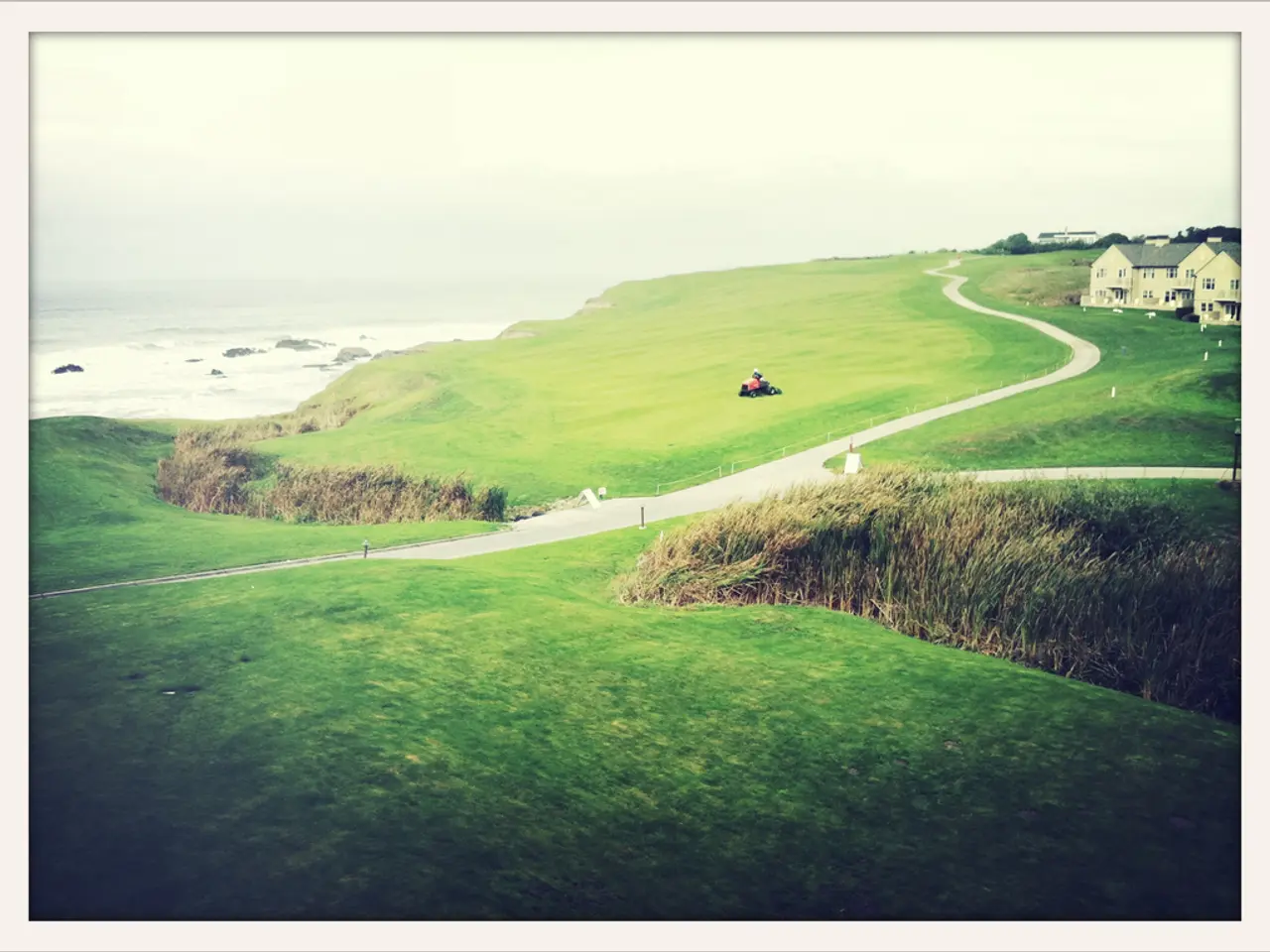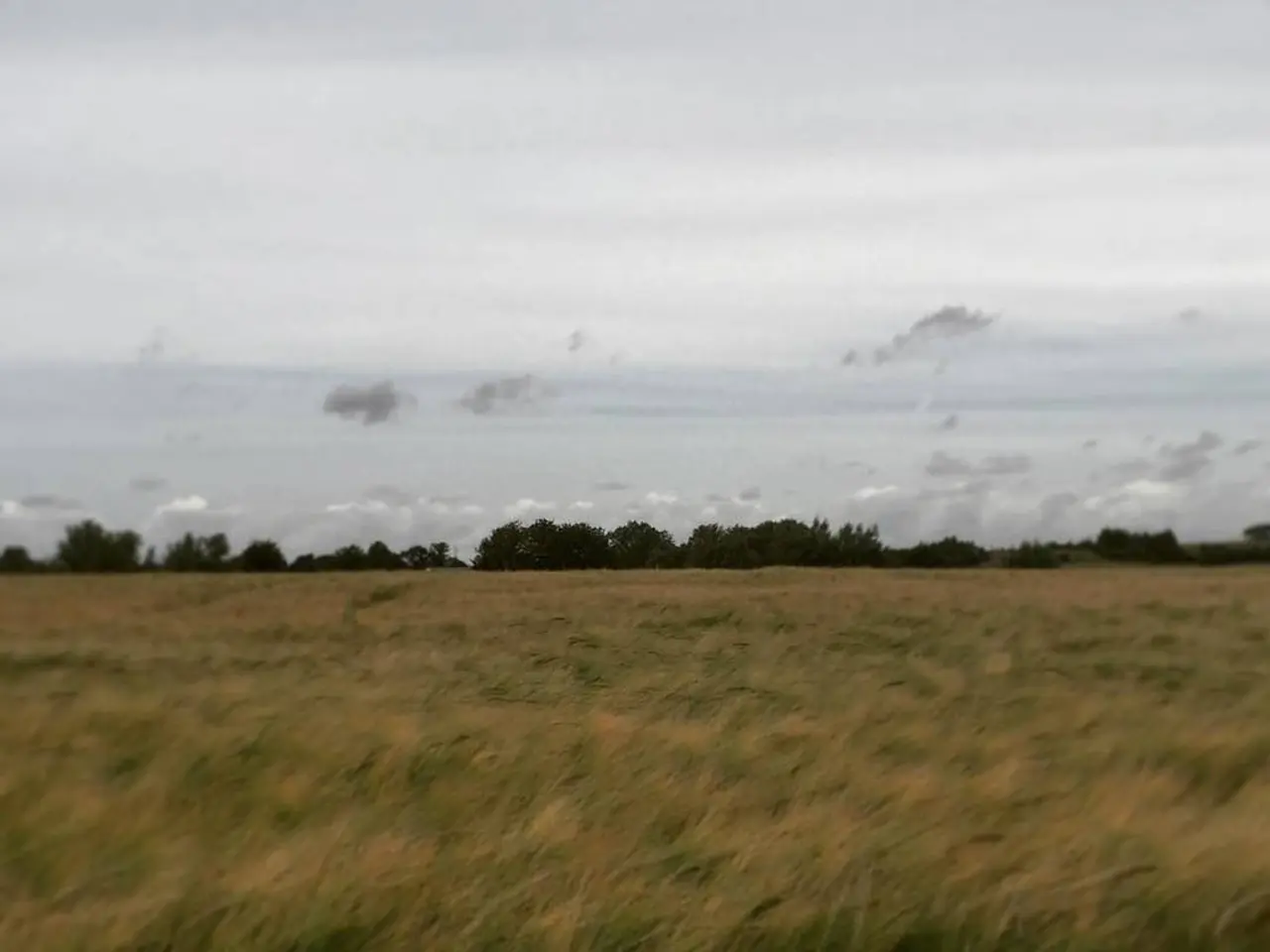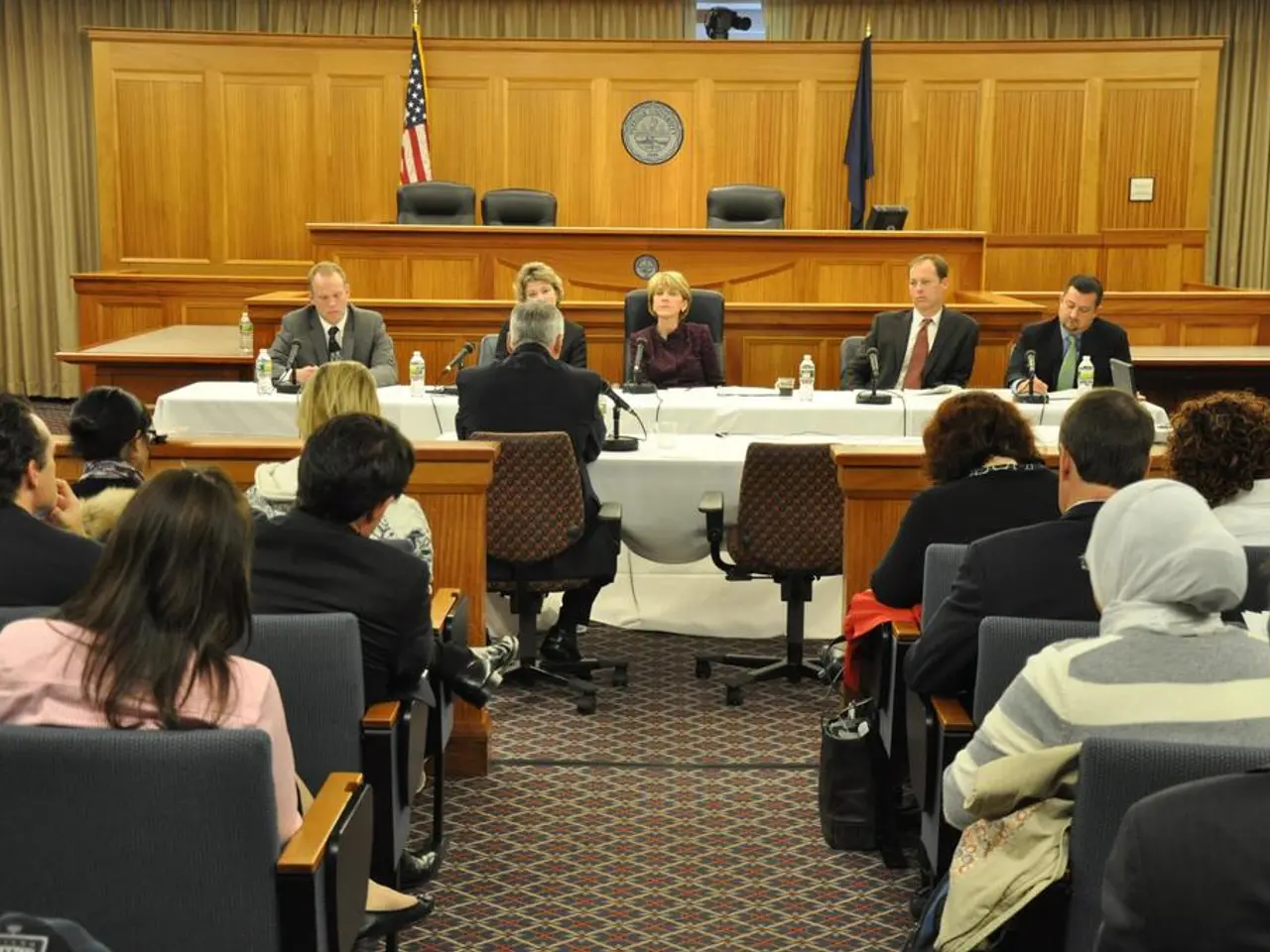Struggle of farmers persists due to variable prices and weather conditions despite a bountiful crop yield - Struggling Farmers Confront Volatile Prices and Weather Variations amid Successful Harvest Seasons
Farmers in southern Rhineland-Palatinate are grappling with a multitude of challenges, including the impacts of climate change, international competitive pressure, and economic effects of the Ukraine war.
## Climate Change Impacts
Climate change is leading to more frequent and severe weather events, such as droughts, floods, and heatwaves, which can significantly impact crop yields and quality. Changes in temperature and precipitation patterns are also disrupting traditional growing seasons, necessitating farmers to adapt their planting and harvesting times. Warmer temperatures and altered ecosystems are also contributing to the spread of diseases and pests, affecting crop health and requiring additional management efforts.
## International Competitive Pressure
Market competition from producers in other regions and countries, often with lower production costs or favourable trade agreements, is another challenge for farmers in the region. The availability of imported produce can reduce demand for local products, impacting sales and prices.
## Economic Challenges from the Ukraine War
The war in Ukraine has disrupted global supply chains, affecting grain and other commodity prices, leading to fluctuations in producer prices for farmers. Increased costs for fertilizers and energy due to the conflict can further reduce profit margins for farmers. Trade sanctions and restrictions imposed due to the conflict can limit market access and reduce prices for certain agricultural products.
## Adaptation Strategies
To address these challenges, farmers are focusing on diversification, growing a variety of crops and exploring new markets to reduce dependence on any one commodity. They are also implementing climate-resilient farming practices, such as organic farming or agroforestry, to improve resilience and potentially command higher prices. Adopting precision agriculture and digital tools to optimize resource use and reduce costs is another strategy. Advocating for policies that support local agriculture, such as subsidies for climate-resilient practices or trade agreements that protect local markets, is also crucial.
Crops like millet, quinoa, or lentils, which cope well with dry periods, show great potential to contribute to a crisis-proof production with appropriate further development, according to the Nature Conservation Association (NABU). Crop rotation, undersowing, pre- and intercrops can also contribute to higher resilience of agriculture.
Despite the challenges, the harvest in southern Rhineland-Palatinate is reported as average to good, with yields exceeding last year's values. The qualities of the harvest are generally good, according to Eberhard Hartelt, President of the Farmers and Winemakers Association Rhineland-Palatinate South.
However, low producer prices are causing concern for farmers, as the expected harvest volume is often not sufficient to generate the necessary profits. Climate change is putting pressure on farmers' businesses, with increasing weather-related risks and decreasing operational security. In the long term, only those plants that can withstand both prolonged drought and hail and heavy rain will have a chance, says NABU agriculture expert Frederik Weires, implying that the species decline will accelerate further.
Overall, farmers in the region need to be highly adaptable and innovative to manage these challenges effectively.
- Embracing innovative farming practices, such as climate-resilient agricultural methods like organic farming and agroforestry, can help farmers in the community adapt to the impacts of climate change, including severe weather events and altered ecosystems.
- To cope with the effects of climate change and the economic challenges posed by the Ukraine war, farmers in the region are diversifying their crops and exploring new markets, with crops like millet, quinoa, or lentils showing potential for crisis-proof production.








